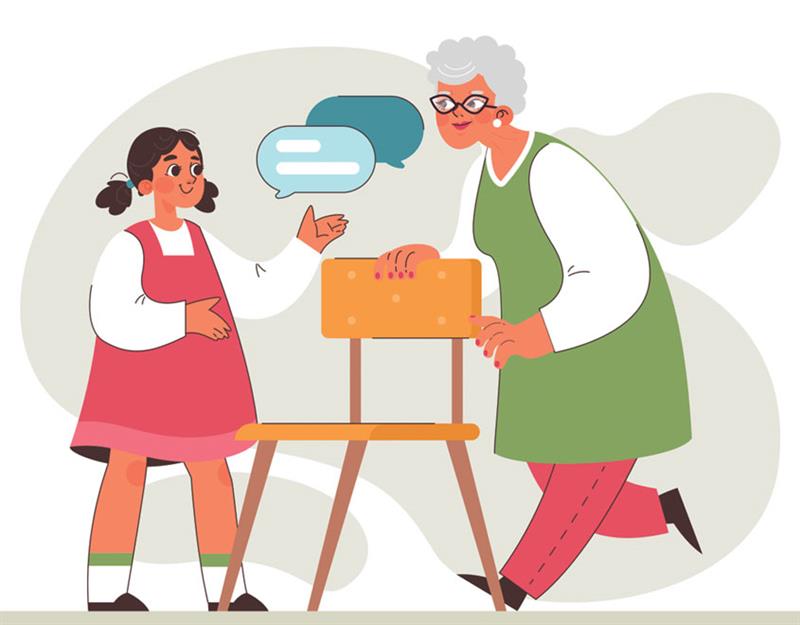
In ancient times people used to get an education from government-established institutions. But, in today’s Times, India’s education landscape has undergone a significant transformation with private schools, emerging as a dominant force. According to an article by Times Of India, a population of 12 crore students, approximately 50% of the country, are now enrolled in private schools. Our country has the third-largest School system in the world.
India has government-run schools and private schools. A closer look at the enrollment trends shows that between 1978 and 2017 students in Government schools declined from 74% to 25% including a loss of trust of the public in Government education systems. Due to this, private schools witnessed a remarkable surge in enrollment growing from 3% to nearly 35% during the same period as per the data provided by Times Of India.
How would Indian parents prefer their child to study? In a government school or a private school?
Most of the population, today, educate their children in private schools and not in government-run schools which shows the impact of private schools. This phenomenon can be attributed to various factors, including the perceived superiority of private schools in terms of infrastructure, faculty, and academic rigor. Additionally, the inability of government schools to cater to the growing demand for quality education has created a void that private schools have been quick to fill.
How private schools are the backbone of the Indian education system?
Private schools are the backbone of the Indian education system because they play a vital role in shaping the country’s educational landscape. They are the base foundation of India’s education system, providing a robust and diverse learning environment that caters to the different needs of the vast and growing student population in the country. How they are doing it, is mentioned below.
1. Retaining top talent:
Private schools offer competitive salaries and benefits, enabling them to hire and retain experienced and skilled teachers.
2. Modern facilities for students:
Private schools often have modern facilities, state-of-the-art technology, and ample resources, creating a conducive learning environment.
3. Implementing the latest trends in education:
Private schools encourage innovative teaching methods, project-based learning, and extracurricular activities, helping students develop critical thinking and problem-solving skills.
4. Individualized learning:
Private schools typically have smaller class sizes, allowing teachers to provide individualized attention and cater to diverse learning needs.
5. Academic excellence:
Private schools often set high academic standards, pushing students to excel and reach their full potential.
6. Offering diverse curriculum:
Private schools may offer specialized programs, such as STEM, arts, or language immersion, catering to diverse interests and talents.
7. Personality development:
Private schools prioritize values like integrity, respect, and empathy, helping students develop into well-rounded individuals.
By focusing on these areas private schools are continuously contributing to the education quality of the Indian education system. Private schools are now seen as Institutions of Excellence providing students with a high-quality education and a competitive edge in the job market, however we need to the surface that many private schools are struggling to stay afloat due to the financial crisis. The plight of private schools is an issue that has its consequences for the students, teachers and education system as a whole.
Financial struggles of private schools in India
Private schools rely heavily on tuition fees to operate but many families struggle to keep up with the payments. This leads to many parents finding it difficult to pay the high fees of schools and it becomes difficult for them to afford education as a result private schools face significant shortfalls in revenue leading to budget cuts, layoffs and reduced resources.
1. Impact on education:
As discussed above, private schools are the backbone of the Indian education system. If private schools suffer then the education system of India will also suffer. The Indian education system depends heavily on private schools for the quality of education. The vast population of India which has a variety of learning needs depends on private schools for their educational needs.
The financial struggles of private schools have a direct impact on the quality of education provided. With reduced budgets, schools are forced to:
- Cut programs and courses
- Reduce staff and increase class sizes
- Limit resources and materials
- Postpone maintenance and upgrades
This can lead to a decline in academic performance, reduced opportunities for extracurricular activities, and a lower overall quality of education.
2. Consequences for students:
The implications of this trend are far-reaching. On one hand, private schools are providing access to quality education for millions of students, which could potentially lead to better academic outcomes and increased opportunities. On the other hand, the plight of private schools can lead to serious consequences for students, including:
- Reduced access to quality education
- Limited opportunities for academic and personal growth
- Increased stress and pressure to perform
- Uncertainty about the future of their school
3. Consequences for teachers:
Teachers in private schools are also affected, facing Job insecurity and reduced job satisfaction, Increased workload and stress, Limited resources and support, and Reduced opportunities for professional development.
How COVID affected the private schools: Story of Akshara school of excellence
Akshara School of Excellence, a private school in Hyderabad, one such institution faced financial constraints. Srinivasa Reddy, the school’s founder, shared that they had to reduce their staff strength by 30% and cut salaries by 20% to manage their expenses. Despite these efforts, the school still struggled to pay its teachers on time.
4. What did others say?
“The pandemic has exposed the vulnerabilities of our education system, particularly for private schools.” – Ramesh Pokhriyal, Union Education Minister
“Private schools are the backbone of our education system, and their survival is crucial for our country’s future.” – Kiran Mazumdar-Shaw, Chairperson, Biocon
The COVID-19 pandemic has brought significant challenges to private schools, with delayed payments, reduced enrollment, and increased operational costs threatening their survival. It is crucial to support these institutions to ensure that they can continue to provide quality education to their students.
5. Solutions
The plight of private schools is a pressing concern, with far-reaching consequences for students, teachers, and the education sector as a whole. It is essential to address this issue promptly to ensure that private schools can continue to provide quality education to their students. To address the plight of private schools, solutions must be found to address the financial struggles and ensure the long-term sustainability of these institutions.
Addressing Financial Struggles: To address the plight of private schools, solutions must be found to address the financial struggles and ensure the long-term sustainability of these institutions.
Potential Solutions:
1. Government Support and Funding:
Explore government initiatives and funding opportunities to alleviate financial burdens.
2. Increased Fundraising and Development Efforts:
Strengthen fundraising strategies and development initiatives to secure vital resources.
3. Diversification of Revenue Streams:
Expand revenue sources to reduce dependence on tuition fees.
4. Collaboration and Partnerships:
Foster partnerships with other schools and organizations to share resources and expertise.
By implementing these solutions, we can ensure the long-term viability of private schools and protect the interests of students, teachers, and the education sector as a whole.
Conclusion
The plight of private schools is a complex issue with far-reaching consequences for students, teachers, and the education system. It is essential to address the financial struggles of private schools to ensure that they can continue to provide high-quality education and opportunities for students. By working together, we can find solutions to support private schools and ensure that they remain a vital part of our education system.
FAQs
1. What is the role of private schools in education in India?
Private schools in India play a significant role in education, providing an alternative to government schools. They offer Quality education with modern infrastructure and resources, Experienced and trained faculty, Diverse curriculum options, including international board, Enhanced extracurricular opportunities, Better student-teacher ratio, and Increased parental involvement. These schools cater to diverse student needs, fostering academic excellence, and preparing students for competitive exams and global opportunities. They also drive innovation and improvement in the education sector.
2. Why are private schools better in India?
Private schools in India are often considered better due to Better infrastructure and resources, Qualified and experienced teachers, Smaller class sizes and personalized attention, Emphasis on extracurricular activities and holistic development, Stronger parental involvement and accountability, Access to modern technology and digital resources and Focus on academic excellence and competitive results. These factors contribute to a superior learning environment and better educational outcomes.
3. How do private schools improve the quality of education?
Private schools improve the quality of education by Attracting and retaining top teaching talent, Investing in modern infrastructure and technology, Implementing innovative and research-based curricula, Fostering a culture of academic excellence and competition, Encouraging critical thinking, creativity, and problem-solving skills, Providing individualized attention and support to students. These efforts lead to enhanced learning outcomes, better student performance, and increased opportunities for success.
4. What is the expenditure of private education in India?
The expenditure on private education in India is significant, with estimates suggesting, Average annual tuition fees range from ₹50,000 to ₹2 lakhs, Additional costs for transportation, uniforms, and extracurricular activities, Total expenditure on private education estimated at ₹1.5 lakh crores ($20 billion USD) annually, Accounts for approximately 40% of total education expenditure in India.
5. Which is the most expensive private school in India?
The most expensive private school in India is Woodstock School in Landour, Uttarakhand ¹. It’s an international co-educational residential school that offers kindergarten through Grade 12 instruction. Woodstock School is fully accredited by the Middle States Association and the International Baccalaureate (IB) World School. It’s known for its high-quality education and luxurious facilities.






Social